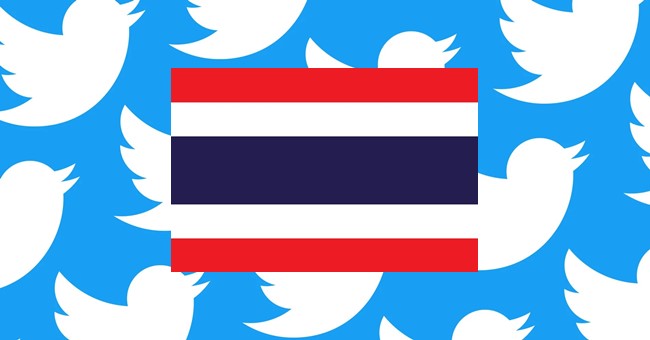
Tweets attacking Future Forward Party and Move Forward Party by accounts connected to Thai Army were deleted
Twitter and Facebook have permanently banned 1,594 accounts they classify belonging to more than “a dozen disinformation accounts”, including 926 Twitter accounts linked to the Royal Thai Army.
Others were linked to governments in Iran, Saudi Arabia, Cuba and Russia. Authoritarian governments whose company the Thai government may be embarrassed to be seen in.
In a blog post, the company had this to say about the Thai army-related Twitter accounts:
“Our investigation uncovered a network of accounts partaking in information operations that we can reliably link to the Royal Thai Army (RTA). These accounts were engaging in amplifying pro-RTA and pro-government content, as well as engaging in behavior targeting prominent political opposition figures.”
They went on to say these bans would not be the end when it comes to other Twitter accounts that may be affiliated with the Thai Army.
“We are disclosing 926 accounts today and continue to enforce against small-scale activity associated with this network, as we identify it.”
The company also stressed any other Twitter accounts discovered to be connected to the Thai Army are likely to be banned in coming weeks as well.
In conjunction with this, Stanford Internet Observatory’s Cyber Policy Center also released a report today called Cheerleading Without Fans: Domestic Information Operation by the Royal Thai Army.
The 33-page report said Twitter had shared information with Stanford’s Cyber Policy Center about the Twitter accounts affiliated with the Thai Army on September 24th. Including information they would be banning 926 accounts.
(The report can be downloaded here).
The report states 21,385 tweets that were pro-Thai Army or pro-Thai government were also removed along with the accounts, as well as tweets “attacking political opposition, particularly the Future Forward Party and Move Forward Party”
The Stanford report goes on to explain:
“Tweets often focused on particular events, such as court cases over a loan to the Future Forward Party (resulting in its subsequent disbandment) and the Korat shooting (A shooting in February of this year when a Thai soldier shot and killed 30 people and injured 57 others at a shopping mall in Nakhon Ratchasima).
In the latter case, the network tried to redirect criticism away from the Army, distance the Army from the shooter, and highlight how well the Army responded to the crisis.”
The report also goes on to insinuate the Thai government is “an authoritarian regime”:
“This shift from hard forms of censorship to online manipulation follows the global trend in which social media is increasingly used, particularly by authoritarian regimes, to monitor, manipulate, and marginalize critical voices.
Part of the Thai military’s fear is a formation of underground groups seeking to subvert the Thai nation, particularly to overthrow the monarchy.”
In other words, Twitter has just embarrassed the Thai Army internationally and accused it of spreading fake news to bolster its own longevity while attempting to destroy its opponents.



